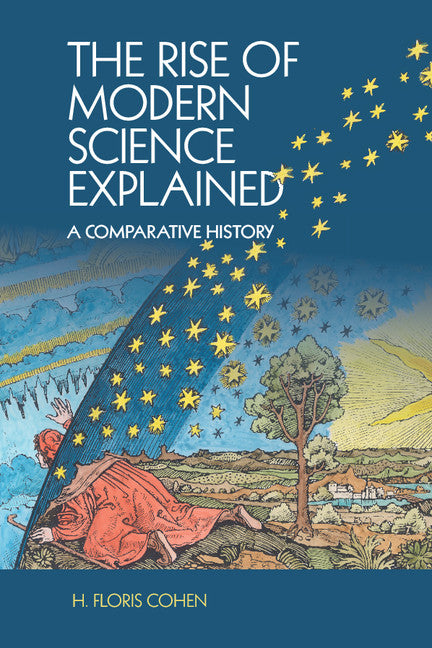Freshly Printed - allow 10 days lead
Couldn't load pickup availability
The Rise of Modern Science Explained
A Comparative History
Authoritative and highly accessible account of how and why modern science arose in Europe through sustained comparison with other civilisations.
H. Floris Cohen (Author)
9781107545601, Cambridge University Press
Paperback / softback, published 24 September 2015
301 pages, 15 b/w illus. 3 tables
22.8 x 15.3 x 1.5 cm, 0.49 kg
'This is truly an impressive feat of scholarship … The project that Cohen has offered to us is enormously engaging and stimulating. This volume will lead some readers back to his previous two works to explore these questions in more detail.' Babak Ashrafi, Metascience
For centuries, laymen and priests, lone thinkers and philosophical schools in Greece, China, the Islamic world and Europe reflected with wisdom and perseverance on how the natural world fits together. As a rule, their methods and conclusions, while often ingenious, were misdirected when viewed from the perspective of modern science. In the 1600s thinkers such as Galileo, Kepler, Descartes, Bacon and many others gave revolutionary new twists to traditional ideas and practices, culminating in the work of Isaac Newton half a century later. It was as if the world was being created anew. But why did this recreation begin in Europe rather than elsewhere? This book caps H. Floris Cohen's career-long effort to find answers to this classic question. Here he sets forth a rich but highly accessible account of what, against many odds, made it happen and why.
Introduction: the old world and the new
1. To begin at the beginning: nature-knowledge in Greece and China
2. Islamic civilization and medieval and Renaissance-Europe
3. Three revolutionary transformations
4. A crisis surmounted
5. Expansion, threefold
6. Revolutionary transformation continued
Epilogue: a look back and a look ahead
Timeline 1: pre-1600
Timeline 2: 1600–1700
Literature
Provenance of quoted passages
Index.
Subject Areas: History of science [PDX], General & world history [HBG]


